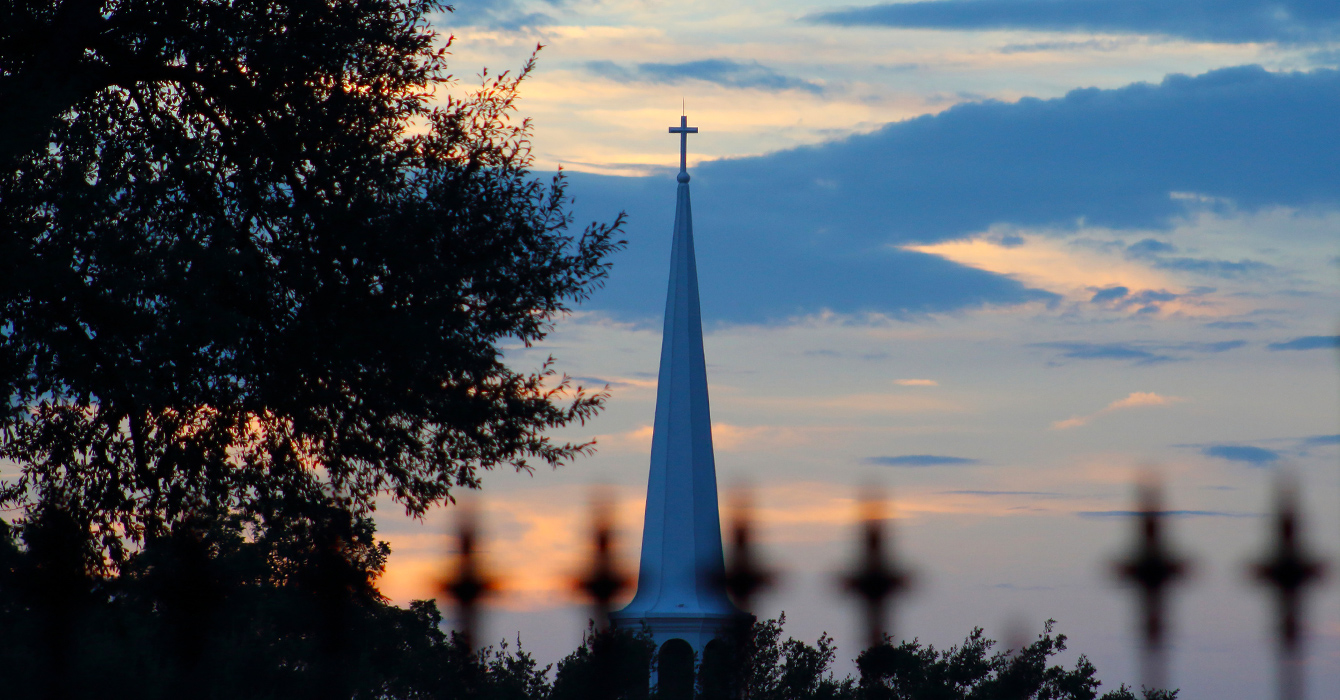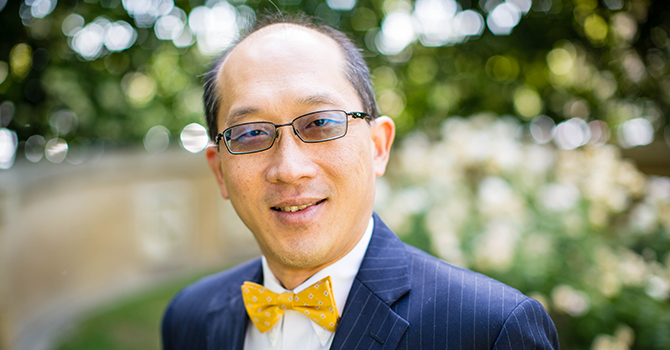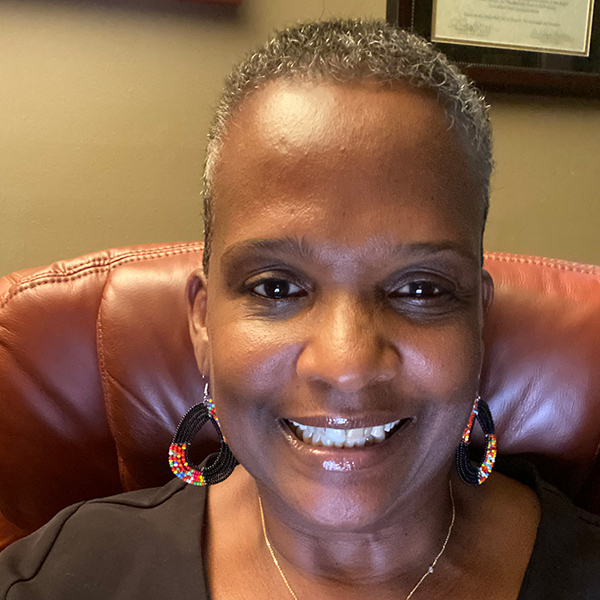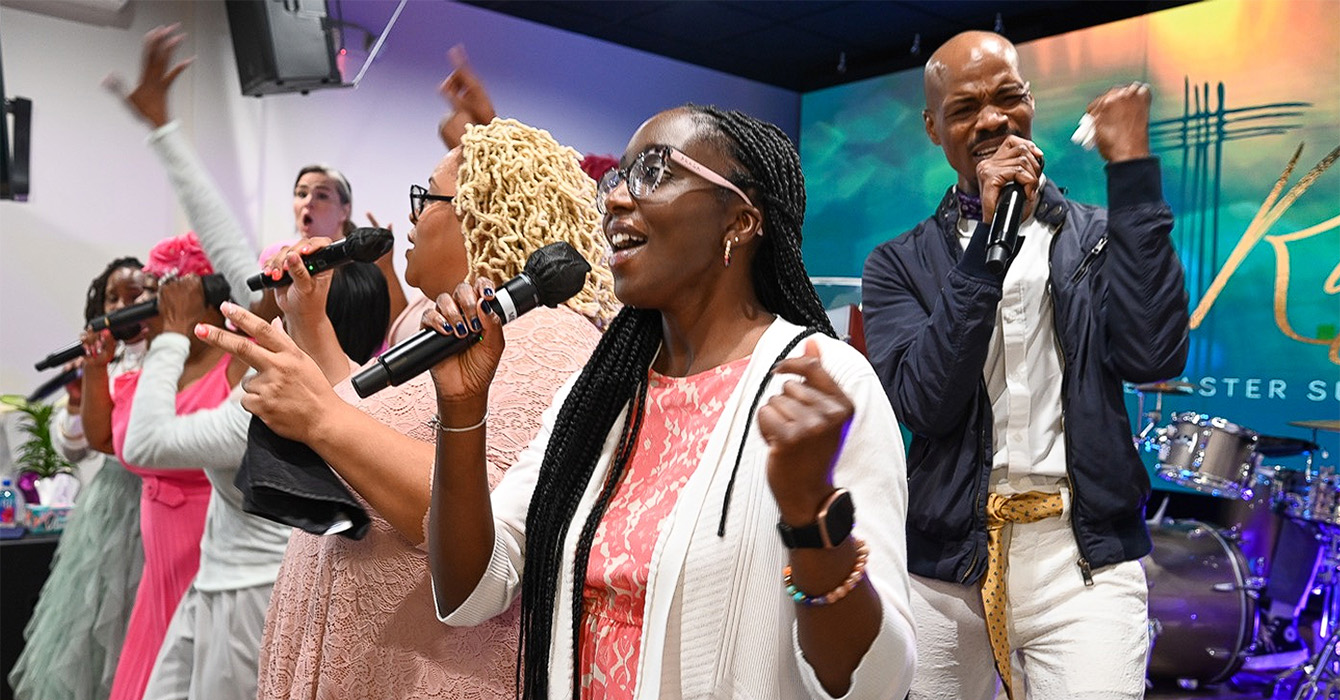Mark Young is immersed in his fifth decade of evangelical theological education as a student, teacher or believer. Young, currently president of Denver Seminary in Littleton, Colorado, grew up in the American Baptist Church, but it was through campus ministry as a college student, he says, that his faith was really brought to life.
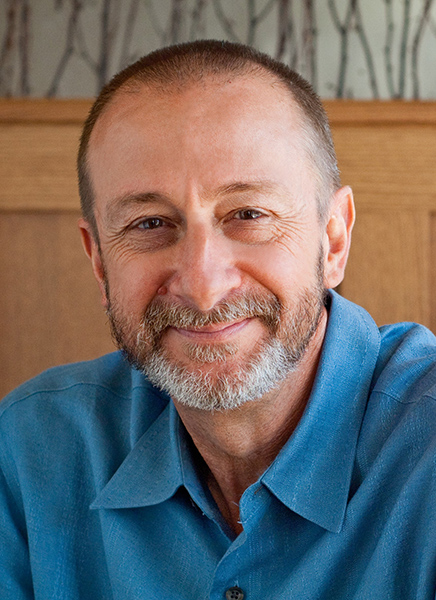
After hearing a professor from Dallas Theological Seminary speak, he chose to attend the seminary in Texas then lived and worked in Central Europe through the ’80s until 1995, partnering with Protestant groups associated with mission agencies.
“I was a part of that evangelical theological education movement globally and then came back and went on faculty at Dallas Theological Seminary as a professor of world missions and then came [to Denver Seminary],” Young said recently. “So, suffice it to say, that since I went to seminary in 1977, I’ve been associated with evangelical theological education.”
In his new book, “The Hope of the Gospel: Theological Education and the Next Evangelicalism,” Young draws on his past 45 years and offers some suggestions for a faith tradition he loves, sharing his concerns with evangelicalism’s present as well as hope for its future.
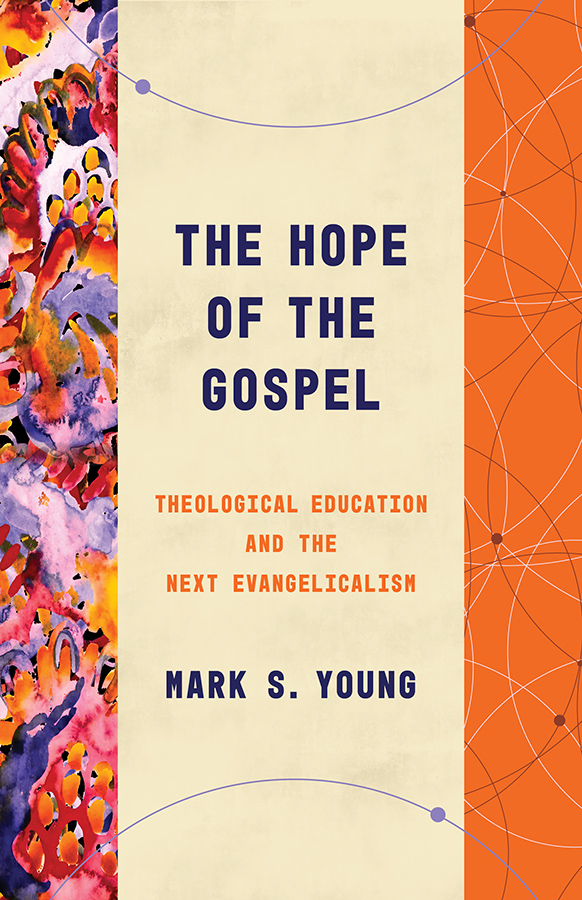
Young spoke with Faith & Leadership’s Aleta Payne about the book, the latest offering in the Theological Education Between the Times series. The following is an edited transcript.
Faith & Leadership: You write that the book comes out of your concern for the future of evangelical theological education, and one of your quotes really stuck with me: “It’s the voice of a concerned son, one who is grateful, sympathetic, critical and hopeful in equal measure.” It’s hardest to have these conversations with those we love the most because we love them the most. Can you talk about getting to this point and having these conversations and how you think that’s going to go?
Mark Young: This writing project occurred in the framework of what I think was the most significant crisis evangelicalism has faced since the Scopes Trial of the 1920s – by that I mean a crisis of identity and a loss of a sense of our mission. I would say 2015 through 2020, as the movement became welded to a political identity that was embracing candidates whose values and whose beliefs were contrary to the fundamental beliefs and values that the movement says that it upholds, the movement lost its sense of who it is and why it exists.
When I think about the pathway forward, can we reclaim the rich, theological meaning, the hope-filled meaning of the term “evangelical” and what the movement says that it stands for? Theological education to me is one of those pathways forward.
Part of the challenge that I hope to undertake in this book is to identify that the way we have come to articulate and live out the core theological convictions of the movement actually contributed to the crisis of identity and mission that we’ve experienced really from the early 2010s until the present.
The book postulates that we as a movement and we as theological educators in the movement have an opportunity to help the movement rearticulate our core theological convictions in ways that will allow us to reclaim our identity as gospel people and perhaps begin to push back against the broader social, cultural and internal identification of the movement as a conservative political action committee.
F&L: In another quote that sort of dovetails with that, you ask, “What matters most to me as a theological educator?” and your answer is, “Gospel, redemption and hope.” Can you talk about why those three?
MY: The gospel, of course, is that great good news that God has intervened on our behalf. Redemption is the nature of that intervention. It is God’s rescue of humanity from the trio of sin, death and evil and the restoration of life as he intended it. This gives us hope.
A gospel-framed life is a hope-filled life, and the ultimate expression of that hope is the solid conviction that, at the end of all things, redemption will be complete, that God will restore this broken planet to all that he created it to be and he will restore his broken people to what he created them to be.
Gospel, redemption, hope for me are those core theological convictions that I believe the movement should be defined by.
F&L: There’s a lot in this book about hope, including in the title. You say, “Evangelicalism’s best self is being hope mongers, not fear mongers.” We are in this season where hope can feel so distant, even unachievable. Could you talk about hope in a time that can feel hopeless and how you see that as a part of this process?
MY: For me, the opportunity to have hope and imbue all that I think and all that I do is grounded in the fact that the end of the story in which we live is already known. For many stories, the real meaning of the story emerges in the way the story concludes.
The Bible concludes the story of human history with the hope of restoration. That perfect justice, perfect healing, perfect reconciliation are what God is guiding all of human history toward.
That then becomes imminent or real in my life in the simple recognition that, as those who have believed in this good news of redemption, we can live out just a glimmer or a foretaste or an aroma or a whisper of what that ultimate redemption will be.
Just as that ultimate redemption brings the fullness of life as God created it, we can bring in our daily lives, in our relationships, in our communities these glimpses or whispers or foretastes of that life.
From my perspective, to the degree that our movement has become an aggrieved and fearful community that believes it has to fight against those forces or beliefs or values that they feel threaten it, that posture is contrary to the promise of the gospel and its ultimate fulfillment. That’s part of our identity crisis.
F&L: Where does that fear come from?
MY: I would argue that the identity of aggrieved minority, which sociologist Christian Smith helped us see even back in the beginning of the 2000s, I think that aggrieved minority [fears losing] a way of life or social power and position and influence that evangelicals naively believe they once had.
One of the things that I often say, nostalgia is not a Christian virtue. Remembering is. Hope is.
What has happened, let’s say from the 1970s until now, is similar to what happened at the end of the 19th century.
We see Protestants beginning to fear that both on an intellectual side with historical critical methods of the interpretation of Scripture, with the rise of science and a view of the future that was more optimistic based on human capacity, and with immigration patterns that diminished white Protestant influence, you see the development of this community that pulls back from society and begins to fear the world and shout condemnation of the world. We know that as fundamentalism.
Evangelicalism then emerges from fundamentalism with the desire to have a posture of engagement with the broader society rather than a posture of fearful withdrawal. I would say that hopeful engagement comes as an apposition to fearful withdrawal.
We see that same movement, same dynamic socially and culturally beginning in the 1970s and then formalized and embodied in the Moral Majority in the swing for right-wing Republican politics that we see beginning in the 1980s.
So you feel like you’ve lost your power, your position, and you have not.
I’ll add another layer here. In my opinion, one of the reasons that evangelicals brought and grasped onto an elevated political identity and cultural power is that we have had as a revivalist movement a malnourished theology of conversion, which is one of the chapters later on in the book.
F&L: One of the book’s other themes is change. I’m going to quote you back to yourself. “Change is not theological education’s deliverer, but it must be an educator’s constant companion and conversation partner.” You also say, “Evangelical theological education needs more than change. It needs a refocused raison d’etre, a calling, a mission.” A source for some of this fear you’re talking about is that change is hard and change is scary.
MY: That’s correct. What I wanted to focus on there is that a lot of the energy among evangelical theological educators is driven by change in form — change in institutional forms, change in educational modalities, change in curricular structure and honestly [for] most of us in this it’s because we’re tuition-based institutions.
Our financial models are tuition-based so this change is often driven by the simple recognition that if we’re not enrolling more students then we will be in jeopardy financially.
What I want to say in this book is that I think that the creativity and entrepreneurial spirit of evangelical educators will be sufficient to keep the doors open and the lights on for most schools. Not all schools but most schools.
The kind of change that I think we need to embrace and embark upon is that deeper change of how we have articulated and expressed in behavior our core theological commitments.
In evangelicalism, we tend to have this idea because most of us are conservatives that what we believe doesn’t change. What we do changes.
My contention is that hard work in the area of beliefs and values, of seeing how we can rearticulate, hold on to and express in new ways at the same time is what has defined the movement theologically.
That’s why half the book is devoted to a look at those relatively widely agreed upon core theological commitments of biblicism, crucicentrism, conversionism and activism. I think our pathway forward and the change we must make are in our convictions and values.
I think that’s more important than whatever changes we’re going to make in financial models and educational modalities.
F&L: Circling back a bit to hope, to believe that evangelicalism can sustain itself, that it can hold even as it reconsiders such fundamental pieces, that’s wildly hopeful.
MY: It is, and I would argue it’s wildly necessary. The crisis of identity and mission that we have experienced in the last decade is, in fact, an almost inevitable outcome given the way we have chosen to understand and articulate those core theological commitments that really have been present throughout the movement for well over 100, 150 years.
I also think the movement is not historically grounded. I think it’s grounded in nostalgia. I don’t think we have had the courage to take a realistic, honest and humble look at our history and understand how we got to this current crisis of identity and mission, given our theological convictions and the way our history has shaped those convictions.
Half the book is given to a nonhistorian’s short take of the history of a movement with constant reference to our present — how what we’ve struggled with in the past, we’re still struggling with, or how the past has set us up to struggle with identity and mission.
It’s half really driven by history and half by reconsideration of theology.
F&L: When you talk about hopefulness and confidence and the belief that going through the process that you are laying out can yield a good outcome, that’s also deeply faithful.
MY: Absolutely. I think a vision for the future of evangelical theological education that is hopeful is not a vision that precludes suffering.
If we think of hopefulness as simply the desire that we won’t suffer and that we will continue to only thrive without suffering, then we are sadly mistaken and historically unaware.
The reality is, if we defined the hope of the gospel only in terms of a life free of suffering, we have missed the very essence of hope, which is the conviction that our suffering in and of itself is never meaningless and is all redemptive in some way just as Jesus’ suffering was never meaningless and is always redemptive.
F&L: What haven’t we talked about?
MY: I think I would want folks to read this book recognizing that I wrote it for younger theological educators whom I know in various institutions and that the subtitle of the book is just as important as the main title.
My book is written for theological educators who will help shape the next evangelicalism because I do believe the movement is blessed, having younger educators who are pressing for change, who recognize the crisis we’re in as a movement but are as committed to its theological core as those of us who have been a part of the movement all these years.
So for me, at a human level, it resides in this recognition that coming behind those of us who are nearing the finish line of our careers as evangelical theological educators is a cohort of younger educators whose vision for what theological education and evangelicalism can be is hopeful.
I would say writing this book and being in the [Theological Education Between the Times] group was a little bit of a salvation experience for me. When the book opens, I’m not sure I was still really believing in it, either as an enterprise or as a movement.
In that group and through this writing process, the Lord showed me this younger cohort who is pressing for a better evangelicalism and better theological education that can restore our identity and mission in the broader society.

